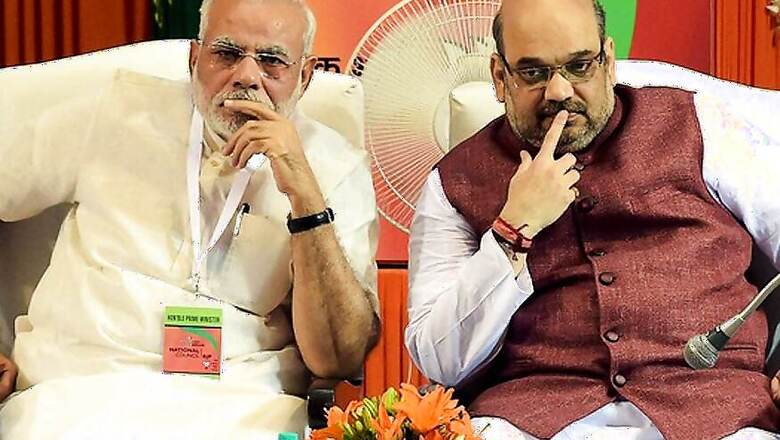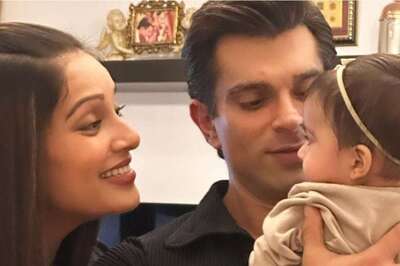
views
While all attention is understandably focused on the politically-crucial state of Uttar Pradesh, the importance of Maharashtra in next month’s Lok Sabha polls cannot be underestimated or overlooked.
The Western state has 48 Lok Sabha seats, second to Uttar Pradesh which sends 80 MPs to Parliament. The Bharatiya Janata Party had swept both the states in the 2014 general election, helping it to cross the majority mark on its own.
Unlike the last election when it faced a fragmented opposition in Uttar Pradesh, the BJP has to contend with the combined strength of the Bahujan Samaj Party and the Samajwadi Party in the coming election. As a result, the ruling BJP is not certain if it can replicate its last performance when it won 71 of the 80 Lok Sabha seats in the Hindi heartland state.
As in the case of Uttar Pradesh, the saffron party had excelled itself in Maharashtra when it reduced the Congress and the Nationalist Congress Party to six seats, winning as many as 41 seats.
Given that the BJP is unable to second-guess the impact of the SP-BSP alliance in Uttar Pradesh, it has become imperative for the saffron party to see that it does not lose too much ground in Maharashtra in the coming election.
On the other hand, it is equally critical for the Congress and the Nationalist Congress Party to reclaim lost ground in Maharashtra to be able to improve their tally at the national level and remain relevant in the Western state which has an assembly election coming up later this year.
Unlike Uttar Pradesh where the Congress is a marginal player, the grand old party, as well as the NCP, have an organisational structure as well as a base in Maharashtra, having been in power in the state for two terms.
Though swept aside by the Modi wave in 2014, the two parties have the potential to claw their way back in the Western state provided they put up a united front. Both the Congress and the NCP realised the peril of going their separate ways in the last Maharashtra assembly election when their combined vote share of 34% dwindled to 18 and 17 percent, respectively. The two parties were the first in the opposition camp to declare that they would battle it out together in Maharashtra.
Till six months ago, it had appeared that the Congress and the NCP had a clear head start over its political rivals as the BJP was constantly being needled by its alliance partner Shiv Sena, which periodically threatened to go it alone in the Lok Sabha polls. This was music to the Congress and the NCP’s ears as this split would work to their advantage. In fact, there were whispers in the two parties about a possible covert electoral understanding with the Shiv Sena.
But the political landscape has undergone a sea change in the past month. The BJP has stolen a march over its opponents as it has managed to placate the Shiv Sena. The two have concluded a seat-sharing agreement with each other and have quickly followed it up with a joint campaign to send out a clear message that they have ironed out their differences and are now working as a team.
On the other hand, the Congress and the NCP appear to have lost the first-mover advantage and are running out of steam well before they can hit the campaign trail. Though the Congress and the NCP have papered over their differences and have arrived at a seat-sharing arrangement, their inability to seal a deal with the Vanchit Bahujan Aaghadi, set up by Prakash Ambedkar and Asaduddin Owaisi, is bound to hurt them. The new front is expected to take away a chunk of the Dalit and minority vote which would have otherwise gone into the Congress-NCP kitty.
In addition, the Congress and the NCP are being pulled down because of rifts within their own ranks. Daily reports of defections from the two parties have brought little cheer to their cadre while infighting is not helping their cause either. Maharashtra Congress chief Ashok Chavan has not got a firm grip over the state unit, while the outgoing Mumbai Congress president Sanjay Nirupum was also perennially at war with his colleagues. Nirupum has been replaced by Milind Deora but coming on the eve of the election, it is a proverbial case of too little, too late.
At the same time, the NCP, too, has its share of problems. Its chief Sharad Pawar first announced that he would contest the coming Lok Sabha election from Madha but opted out subsequently in favor of his nephew Ajit Pawar’s son, Parth Pawar. This announcement has predictably set off speculation of a possible rift in the Pawar clan and is also being viewed as a sign that the Maratha strongman is losing his grip over his family and his party.
Pawar’s exit from the electoral arena is also a signal that the former Maharashtra chief minister is not confident about winning and that the BJP-Sena are on a comeback trail.
Clearly, self-goals by the Congress-NCP combine have given its rivals a clear edge in next month’s election.
(The author is a senior journalist. Views are personal)




















Comments
0 comment